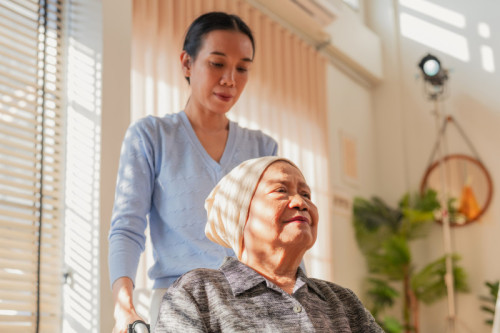
A recent study has highlighted the increasing burden of elderly care on women in Thailand, driven by entrenched social gender norms. Conducted by researchers including Dr. Minh Tam Bui from Srinakharinwirot University, Professor Ivo Vlaev from the National University of Singapore, and Dr. Katsushi Imai from The University of Manchester, the analysis draws upon national time-use survey data from over 70,000 Thai adults.
The findings reveal that women engaged in elderly care dedicate approximately 2 to 2.5 hours daily to unpaid caregiving, significantly more than their male counterparts. This disparity stems from societal expectations that dictate women should be more altruistic caregivers while men are primarily expected to work outside the home. In rural regions, where these norms are particularly strong, the gap widens, with men contributing even less time to elderly care.
Dr. Bui addressed the critical need to explore the origins of caregiving inequality, stating, “We all know that there is a persistent gender care gap – women carry more of the burden in childcare, elder care and household work nearly everywhere in the world – but the underlying reasons for this are often understudied.” The research aims to uncover why these disparities exist, particularly through the lens of social gender norms surrounding altruistic behavior.
Women often find themselves sacrificing paid employment for caregiving responsibilities, a trend not mirrored in men, leading to significant gender gaps in both employment and wellbeing. Dr. Bui noted that this unequal division of labor poses challenges to achieving gender equality and efficiency in Thailand.
Policy Recommendations for Gender Equity
The researchers are calling on policymakers to acknowledge the value of unpaid elderly care. They propose increased budget allocations for long-term care insurance and nationwide campaigns to encourage greater male participation in family care activities. Such measures align with the United Nations’ Sustainable Development Goal 5, which advocates for gender equality.
This study sheds light on a broader global issue where women disproportionately shoulder caregiving responsibilities as populations age and familial structures evolve. The way societies distribute and value care work is expected to be a significant social challenge in the coming years.
The authors also expressed concern over the discontinuation of the Thai national time-use survey by the National Statistical Office. They emphasize the necessity of resuming this critical data collection, as time-use data plays a vital role in understanding gender inequality. Without it, essential aspects of unpaid care work remain obscured in policy development and economic planning.
As Thailand navigates the complexities of an aging population, the insights provided by this research may inform more equitable care systems and foster behavioral change in the country’s approach to aging. The study serves as a crucial reminder of the importance of inclusive policy-making that recognizes and values all forms of care work.







